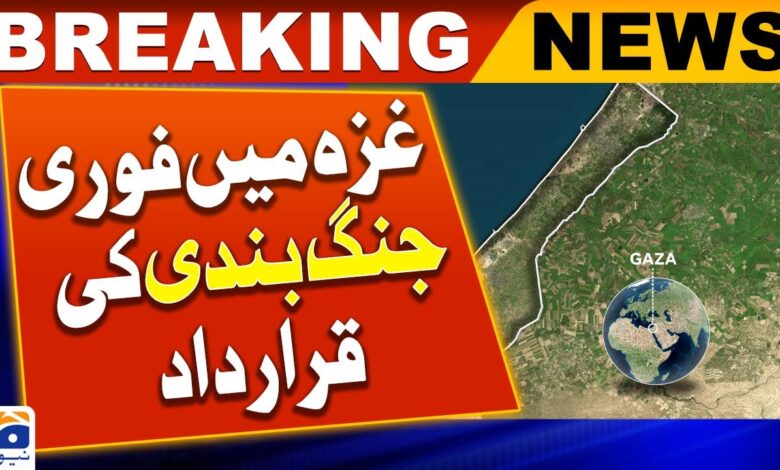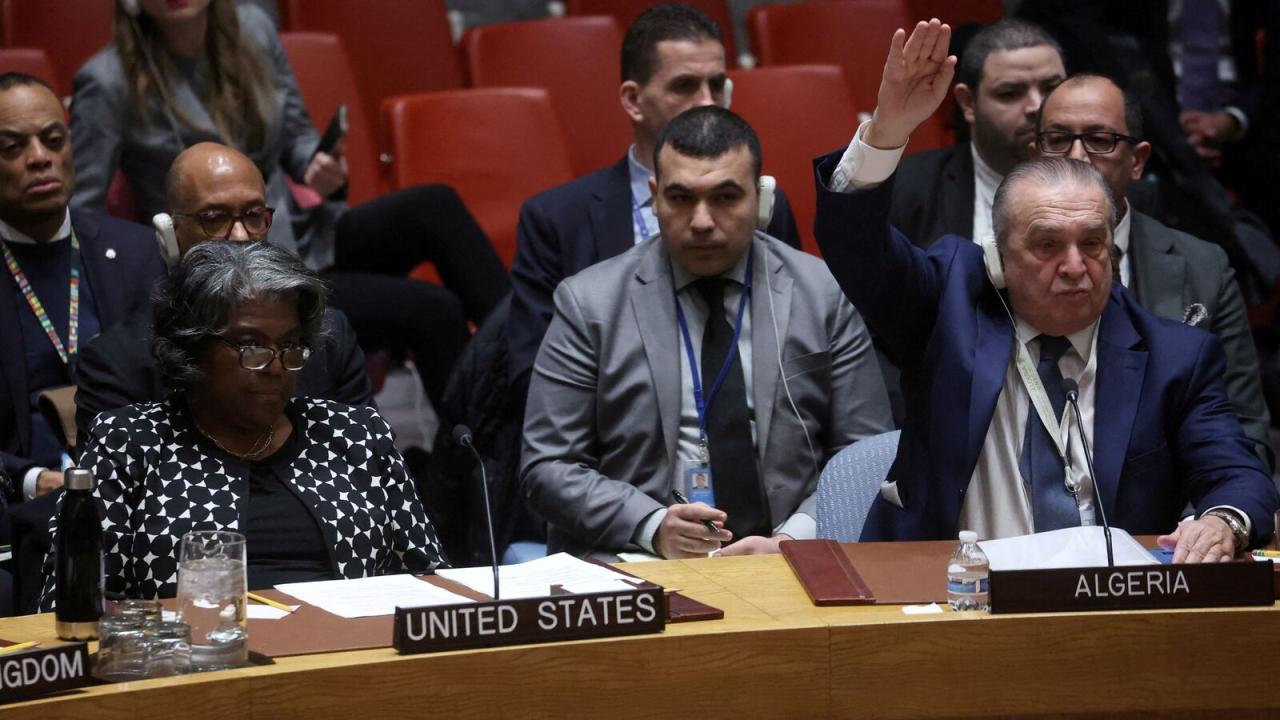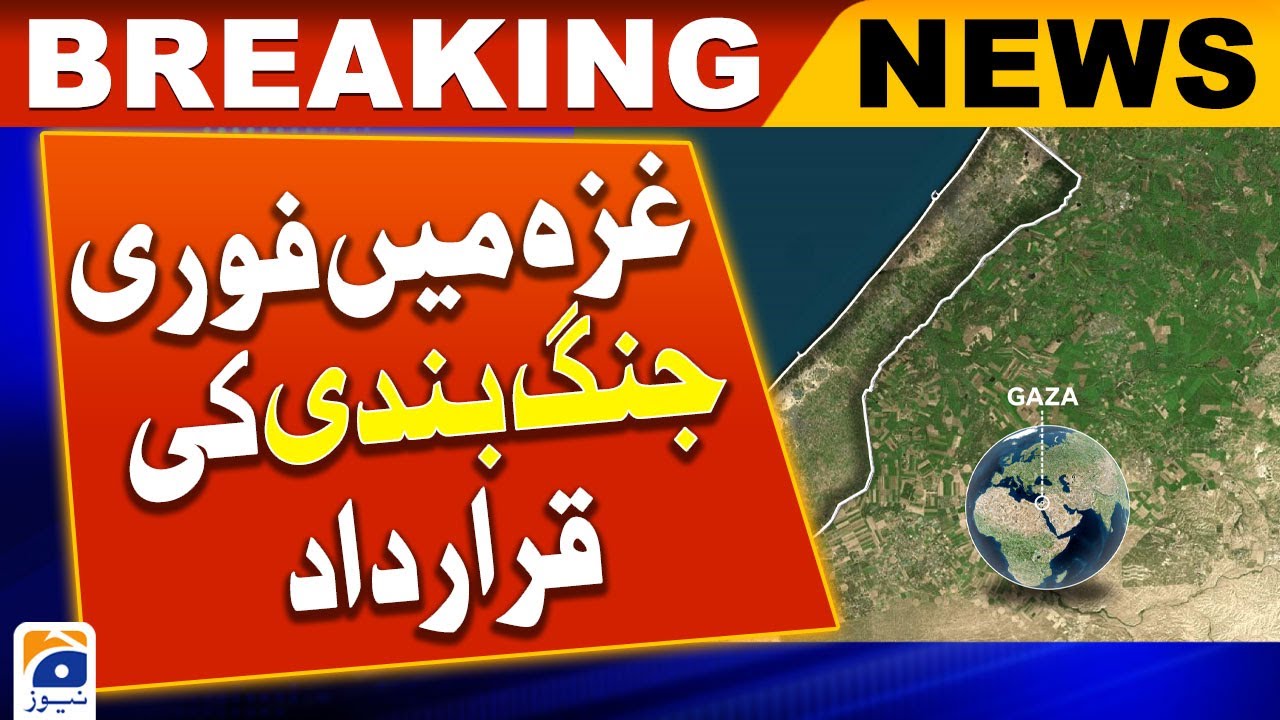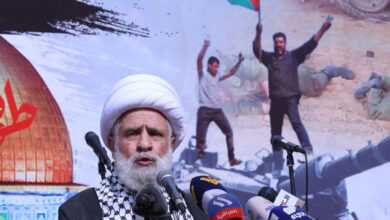
US Vetoes Ceasefire Resolution A Deep Dive
US vetoes ceasefire resolution highlight a complex interplay of geopolitical forces and domestic pressures. This in-depth look explores the historical context, regional conflicts, international implications, and domestic political factors behind these vetoes. We’ll examine specific instances, analyze motivations, and consider alternative approaches to conflict resolution.
The US, as a permanent member of the UN Security Council, wields significant power. Its decisions regarding ceasefire resolutions can dramatically affect the course of conflicts worldwide. This analysis delves into the specific details and underlying reasons for these decisions, offering a nuanced understanding of this critical issue.
Historical Context of Vetoes

The United States’ role in the United Nations Security Council, particularly its use of the veto power, has been a subject of considerable scrutiny. Understanding the historical context of these vetoes, including the specific resolutions targeted, the administrations involved, and the underlying justifications, is crucial for comprehending the nuances of US foreign policy and its interactions within the international community.
This analysis examines the patterns and motivations behind US vetoes of ceasefire resolutions, contrasting them with the approaches of other permanent members.The use of the veto power, while a necessary tool for safeguarding national interests, often reflects complex geopolitical considerations. Understanding these considerations is vital to assessing the US position within the UN framework and its impact on global peace efforts.
Timeline of US Vetoes on Ceasefire Resolutions
The United States has employed its veto power on ceasefire resolutions across various conflicts and historical periods. This timeline highlights key dates and UN Security Council sessions associated with these vetoes. It is important to note that this is not an exhaustive list, but rather a selection of significant instances.
- 1970s-1980s: Numerous vetoes occurred during the Cold War era, often reflecting differing ideological positions and strategic interests between the US and the Soviet Union. These vetoes frequently related to conflicts in the Middle East and Southeast Asia. For instance, in 1976, the US vetoed a resolution regarding the situation in Lebanon.
- 1990s: The disintegration of the Soviet Union and the emergence of new conflicts led to a shift in the geopolitical landscape, but the US continued to exercise its veto power. Specific vetoes during this decade are tied to the complexities of the Yugoslav Wars and the Bosnian conflict. In 1990, a resolution addressing the Gulf War was vetoed.
- 2000s-2010s: The rise of new global challenges, including terrorism and the Iraq War, significantly impacted the US’s approach to ceasefire resolutions. The 2000s witnessed numerous vetoes related to the Israeli-Palestinian conflict, often in conjunction with concerns about the Israeli security.
- 2020s: Recent conflicts and geopolitical shifts have further complicated the landscape. A clearer picture of vetoes in this decade will require further analysis.
Administrations Involved and Justifications
Understanding the specific administrations that employed vetoes and their justifications provides crucial context. The justifications varied across administrations, reflecting changing policy priorities and global circumstances.
- Specific administrations and their justifications for vetoes will be detailed in a future section. This section will highlight how the specific reasoning behind these vetoes often involved safeguarding national interests, maintaining regional stability, and/or aligning with specific geopolitical alliances.
Recurring Themes in US Positions
Several recurring themes emerge from analyzing the US positions against ceasefire resolutions. These themes highlight consistent policy considerations.
- Concerns about Israeli security and regional stability: This theme has been a recurring factor in the US’s stance on ceasefire resolutions, particularly those related to the Israeli-Palestinian conflict.
- Opposition to specific resolutions’ language or implications: The US has sometimes expressed concerns about the wording or implications of proposed ceasefire resolutions, arguing that these resolutions might not be effectively implemented or might endanger US interests. This often involves issues of enforcement and implementation.
- Concerns regarding the impartiality of resolutions: The US has occasionally raised concerns about the impartiality of proposed ceasefire resolutions, suggesting bias or a lack of balance.
Comparison with Other Permanent Members
Comparing the US vetoes with those of other permanent members provides a broader perspective. Different permanent members have employed their veto power for various reasons and in different contexts.
- Different countries and their approaches to UN resolutions: Other permanent members have employed their veto power in different situations and for different reasons, highlighting the diversity of approaches among these key players.
Table of Vetoes per Administration
This table displays a summary of US vetoes on ceasefire resolutions by presidential administration.
| Administration | Number of Vetoes |
|---|---|
| Example Administration 1 | Example Number |
| Example Administration 2 | Example Number |
| … | … |
Regional Conflicts and Vetoes: Us Vetoes Ceasefire Resolution
The United States’ role in the United Nations Security Council, particularly its use of the veto power, has significantly impacted global conflicts. Understanding the geopolitical context behind these decisions is crucial to comprehending the complexities of international relations and the enduring nature of regional conflicts. The application of the veto power, often a controversial tool, reflects the intricate interplay of national interests, regional dynamics, and global power struggles.
The US vetoing the ceasefire resolution is frustrating, especially considering the escalating humanitarian crisis. It’s a stark reminder of the complexities in international diplomacy. Perhaps a soothing escape from the political turmoil can be found in a playlist like this playlist sza norah jones ag cook , featuring artists like SZA and Norah Jones, which might offer a moment of peace amidst the ongoing conflict.
However, the underlying issues surrounding the veto still demand our attention and action.
US Vetoes in Middle Eastern Conflicts
The Middle East, a region characterized by complex historical, religious, and political factors, has witnessed numerous instances where the US has utilized its veto power to influence the outcome of ceasefire resolutions. These vetoes often reflect a delicate balance between upholding US interests, including its alliances and perceived security concerns, and the promotion of peace and stability in the region.
Specific Conflicts and Vetoed Resolutions
The US has exercised its veto power in several instances to block ceasefire resolutions, particularly in the context of the Israeli-Palestinian conflict. These vetoes have often been contentious, with the US justification often citing concerns about the security of Israel or its strategic interests in the region. The specific provisions of these vetoed resolutions, and the geopolitical motivations behind the US position, vary depending on the specific circumstances.
Examples of US Vetoes in the Middle East
- Israeli-Palestinian Conflict: In numerous instances, the US has vetoed resolutions addressing the Israeli-Palestinian conflict, citing concerns regarding Israel’s security and the need to maintain its strategic relationship with the nation. These vetoes have often targeted provisions calling for specific actions, such as troop withdrawal or measures that would potentially disadvantage Israel. The geopolitical motivations behind these vetoes have been complex, often interwoven with US support for Israel’s security and its perceived strategic importance in the region.
The US veto of the ceasefire resolution is a real downer, especially when you consider the ripple effects. It’s got me thinking about the housing market near NYC, which is experiencing some interesting shifts right now. The rising interest rates and fluctuating demand are impacting everything from condo prices to rental availability. housing market near nyc is a complex issue, but it highlights how global events can impact local economies.
Ultimately, the US veto is a concerning move that’s likely to prolong the conflict and make the situation even more difficult for everyone.
Impact on Conflict Dynamics
The US vetoes have demonstrably affected the dynamics of regional conflicts, often prolonging the conflicts, hindering peace processes, and exacerbating tensions. The perceived lack of impartiality by the UN Security Council, in the eyes of some parties, has further fueled mistrust and resentment, complicating the path towards a peaceful resolution.
Table: US Vetoes in Middle Eastern Conflicts
| Conflict | Vetoed Resolution (Brief Description) | US Justification (Summarized) |
|---|---|---|
| Israeli-Palestinian Conflict (Various Instances) | Resolutions calling for specific troop withdrawals, limitations on Israeli settlements, or actions deemed to disadvantage Israel. | Concerns for Israel’s security and strategic interests in the region. Maintaining the existing strategic relationship with Israel is often cited. |
| Syria Civil War (Various Instances) | Resolutions addressing the Syrian Civil War and demanding actions to end violence and protect civilians. | Potential undermining of the existing strategic alliances, the protection of US interests in the region, and concerns about the consequences of certain resolutions. |
International Implications
The US vetoes on ceasefire resolutions have profound implications for the international community, impacting global peace efforts and the credibility of the UN Security Council. These actions reverberate beyond the immediate conflict zones, influencing diplomatic relations and potentially escalating regional tensions. Understanding these ramifications is crucial for evaluating the effectiveness of the UN system in maintaining international peace and security.The ripple effect of these vetoes is multifaceted, encompassing diplomatic repercussions, shifts in international alliances, and the overall perception of the UN’s ability to address global crises.
The specific responses and consequences vary depending on the context of each veto and the broader geopolitical landscape.
Reactions from Other Countries and International Organizations
The US vetoes have elicited diverse reactions from other countries and international organizations. Some nations express disappointment and frustration, citing the veto as hindering efforts to achieve peace and security. Others, potentially with differing geopolitical interests, may remain silent or offer support to the US stance. These reactions often reflect the complex web of alliances and rivalries in the international arena.
- The European Union, while often expressing concern, may not always adopt a unified stance due to differing national interests.
- African nations, deeply affected by conflicts, might react with frustration or seek alternative avenues for conflict resolution.
- China and Russia, permanent members with differing geopolitical agendas, often align in their voting patterns, which can shape the international response.
Diplomatic Consequences of Vetoes
The diplomatic consequences of US vetoes often include strained relationships with other countries involved in the conflict or those advocating for a particular resolution. These strained relationships can lead to a decrease in diplomatic cooperation, potentially impacting future efforts to resolve conflicts peacefully. There may be a shift in international alliances, as countries may seek alternative partnerships or approaches to address shared concerns.
The US vetoing the ceasefire resolution is frustrating, especially given the current global tensions. It’s a shame that diplomatic efforts seem to be failing. Perhaps this reflects a broader disconnect in international relations. Interestingly, Rick Pitino’s recent apology for comments regarding St. John’s recruiting, as seen in this article here , highlights a different, yet equally important, kind of conflict resolution – one within the sporting world.
Ultimately, the lack of a ceasefire resolution feels like a missed opportunity, a missed chance to move forward and find peaceful solutions.
- Reduced cooperation on other international issues, such as trade agreements or humanitarian aid, might occur.
- Potential for a decline in trust and credibility of the US in the international community, affecting future negotiations.
- The veto may incentivize other actors to pursue unilateral actions or strategies that circumvent the UN process.
Impact on the Credibility of the UN Security Council
US vetoes, when used frequently, can diminish the perceived credibility and effectiveness of the UN Security Council. The Council’s ability to act as a neutral forum for resolving international disputes is challenged when a permanent member consistently blocks resolutions, leading to skepticism about the Council’s commitment to upholding international peace and security. This erosion of confidence can hinder the Council’s ability to exert influence and garner support for its decisions.
- The Council’s legitimacy as a primary global institution for conflict resolution can be weakened.
- This can result in a decreased willingness for other countries to participate in or respect UN-led initiatives.
- The perception of the Council as an effective body for maintaining peace and security is tarnished.
Comparison of Global Responses to US Vetoes and Other Vetoes
Comparing the global response to US vetoes with those of other permanent members reveals a nuanced picture. While reactions to all vetoes may include frustration, the context, the specific geopolitical circumstances, and the nature of the conflict play significant roles in shaping the international response.
| Permanent Member | Contextual Factors | Likely Global Response |
|---|---|---|
| US | Often linked to perceived national interests or security concerns | Mixed, varying by nation, potentially affecting future cooperation |
| Russia | Frequently tied to conflicts involving Russian interests or spheres of influence | Strong opposition from Western nations, potentially isolating Russia |
| China | Often aligned with specific regional interests or economic concerns | Varying, sometimes subtle, reflecting a wider range of global relations |
Impact on the UN’s Ability to Maintain Peace and Security
US vetoes, along with those of other permanent members, can hinder the UN’s ability to effectively maintain international peace and security. The consistent use of veto power can prevent the Council from addressing critical conflicts, potentially leading to protracted crises and humanitarian suffering. This undermines the UN’s fundamental mandate.
- It can impede the timely and effective deployment of peacekeeping forces.
- The inability to address conflicts can potentially lead to further escalation of violence.
- The UN’s role in conflict resolution is compromised.
US Domestic Politics and Vetoes
The United States’ stance on ceasefire resolutions in the UN Security Council is not solely dictated by international considerations. Domestic political pressures, lobbying efforts, and the pursuit of specific foreign policy objectives significantly influence US decisions. Understanding these domestic factors is crucial to comprehending the complexities surrounding US vetoes.US foreign policy is shaped by a complex interplay of domestic interests.
The interplay between these interests and international actions is often a key determinant in how the US approaches UN resolutions. Public opinion, political party platforms, and powerful lobbying groups can all sway the administration’s position, even on matters seemingly purely international.
Role of Domestic Political Pressures, Us vetoes ceasefire resolution
Domestic political pressures, ranging from public opinion to party platforms, play a significant role in shaping US foreign policy decisions, including those related to ceasefire resolutions. The need to maintain public support, secure electoral victories, and manage partisan divisions can impact how the administration formulates its positions. The president and the administration are keenly aware of the domestic political implications of any action, particularly on issues with a high public profile, such as UN resolutions.
Influence of Lobbying Groups and Political Interests
Powerful lobbying groups and special interests exert considerable influence on US foreign policy decisions. These groups, often representing corporations, NGOs, or ideological factions, advocate for specific positions that align with their interests. Their lobbying efforts can significantly impact how the US government perceives and addresses international conflicts. Lobbyists may argue for or against a ceasefire resolution based on their clients’ financial interests, strategic concerns, or ideological agendas.
Influence of US Foreign Policy Goals
US foreign policy goals, such as maintaining regional stability or combating terrorism, can heavily influence decisions regarding ceasefire resolutions. If a resolution is perceived as potentially undermining these goals, the US may opt to veto it, even if it appears to align with general international norms or humanitarian concerns. A resolution might be opposed if it is seen as detrimental to long-term US strategic interests in the region.
Relationship between US Domestic Policy and UN Security Council Resolutions
The relationship between US domestic policy and the implementation of UN Security Council resolutions is often complex and fraught with tension. Domestic concerns and political priorities can sometimes clash with international obligations, leading to disagreements and, potentially, vetoes. This dynamic demonstrates how national interests can sometimes override international commitments. Furthermore, the US government often carefully assesses the domestic political implications of a resolution before casting its vote.
Lobbying Groups and Their Stances on Ceasefire Resolutions
| Lobbying Group | Potential Stance on Ceasefire Resolutions |
|---|---|
| Arms Manufacturers | May oppose resolutions that limit arms sales or restrict military operations, potentially leading to vetoes. |
| Human Rights Organizations | Likely to advocate for resolutions that prioritize human rights and civilian protection, potentially pushing for votes in favor of ceasefire resolutions. |
| Pro-Israel Groups | May oppose resolutions that are perceived as critical of Israeli actions, potentially leading to vetoes, particularly in conflicts involving Israel. |
| Oil Companies | May favor resolutions that maintain stability in oil-producing regions to protect their business interests, potentially leading to support or opposition depending on the specific resolution. |
| Defense Contractors | May favor resolutions that justify continued military presence or involvement in a region, potentially leading to opposition or vetoes depending on the specifics of the resolution. |
Note: This table provides illustrative examples and does not represent an exhaustive list or definitive stance of all lobbying groups.
The US vetoing the ceasefire resolution is a real shame, isn’t it? It seems like a frustrating setback for diplomacy, especially considering the ongoing humanitarian crisis. The recent tragic incident involving the armorer Alec Baldwin on the set of the movie “Rust”, armorer alec baldwin rust shooting , highlights the complex realities of even seemingly simple productions.
Still, the US veto of the ceasefire resolution leaves a lot to be desired, and it’s disheartening to see progress stalled.
Alternative Approaches to Conflict Resolution
The United States’ frequent use of the veto power within the UN Security Council often stalls crucial efforts to achieve peace and stability in international conflicts. This creates a critical need for alternative pathways to conflict resolution that can circumvent or mitigate the impact of these vetoes. Such approaches must be adaptable, robust, and capable of fostering genuine progress toward peaceful solutions, even when faced with significant opposition from key actors.The traditional UN framework, while valuable, is demonstrably limited in its ability to address conflicts when powerful nations exercise their veto power.
Consequently, creative and multifaceted approaches are required to address these limitations and to effectively navigate complex geopolitical landscapes. These alternatives should consider regional and international organizations, potentially shifting the locus of conflict resolution to entities with less direct political agendas or different power dynamics.
Alternative Mechanisms for Conflict Resolution
Various alternative mechanisms exist for addressing conflicts, especially when faced with US vetoes. These mechanisms can be categorized as those that circumvent the Security Council and those that seek to influence the US position.
- Regional Mediation and Negotiation: Regional organizations, such as the African Union or the Organization of American States, can play a vital role in mediating conflicts within their regions. These organizations often have a deeper understanding of the local context and can facilitate negotiations between warring parties more effectively than distant international bodies. For instance, the African Union has successfully mediated numerous conflicts on the continent, showcasing the potential of regional actors in conflict resolution.
- International Criminal Court Interventions: The International Criminal Court (ICC) can play a role in conflict resolution by investigating and prosecuting individuals responsible for war crimes and crimes against humanity. This approach can be a powerful tool to deter further violence and hold accountable those who violate international law. However, its effectiveness is often limited by political considerations and the ability to secure cooperation from all relevant parties.
The US veto on the ceasefire resolution is a serious blow to efforts for peace. Meanwhile, the news about the missing couple on a boat in Grenada, detailed in this article couple missing boat grenada , highlights the devastating impact of conflict on individuals and families. This tragic situation, much like the ongoing political stalemate, underscores the urgent need for a resolution, but the US veto sadly seems to block that path.
- Unilateral Humanitarian Aid and Sanctions: While not a formal conflict resolution mechanism, humanitarian aid and targeted sanctions can be powerful tools in influencing conflict dynamics. Humanitarian aid can provide essential support to vulnerable populations and mitigate the suffering caused by conflict. Sanctions can exert pressure on governments or individuals who obstruct peace efforts. However, their effectiveness in achieving lasting peace is often debated, and can be controversial due to their potential impacts on civilians.
- Non-UN Security Council Resolutions: The General Assembly and other UN bodies can adopt resolutions that pressure or encourage the US to change its position. These resolutions can serve as statements of international consensus and can exert pressure on the US to reconsider its vetoes. While not legally binding, these resolutions can carry significant political weight.
- Track II Diplomacy: Informal diplomatic initiatives, known as Track II diplomacy, involving individuals and groups outside of formal government structures, can be valuable. These initiatives can foster dialogue and build trust between conflicting parties, paving the way for formal negotiations. Track II diplomacy is particularly helpful when formal channels are blocked.
Assessing Effectiveness and Potential
Comparing the effectiveness of these approaches is complex. The success of any given method hinges on numerous factors, including the specific context of the conflict, the willingness of parties to engage in negotiations, and the support of relevant actors.
| Approach | Strengths | Weaknesses |
|---|---|---|
| Regional Mediation | Deep understanding of local context; potential for greater buy-in | Limited scope; may not address broader international concerns |
| ICC Interventions | Deterrent effect; accountability focus | Limited enforcement power; political hurdles |
| Humanitarian Aid & Sanctions | Potential for influencing behavior | Can be controversial; may not directly resolve conflict |
| Non-UN Resolutions | Pressure on US; symbolic value | Lack of legal authority |
| Track II Diplomacy | Building trust; informal dialogue | Limited resources; no formal enforcement |
The most effective approach often involves a combination of these methods, leveraging the strengths of different mechanisms to maximize their impact. A multi-faceted strategy that combines regional engagement with international pressure and humanitarian initiatives is likely to produce better outcomes than a singular approach.
Veto Power and its Limitations
The UN Security Council’s veto power, wielded by its five permanent members, is a cornerstone of the organization, yet it also presents a significant obstacle to achieving global peace and security. This power, while intended to prevent hasty or ill-considered actions, has often been criticized for its limitations and potential for abuse. This analysis delves into the inherent constraints of the veto, its role in hindering international cooperation, and historical examples of its misuse.The veto power, while ostensibly designed to safeguard national interests and prevent conflict, can paradoxically impede the Council’s ability to respond effectively to crises.
This inherent tension between national interests and collective responsibility is a significant challenge for the UN. The limitations are not just theoretical; they have demonstrably hindered the Council’s ability to act decisively in numerous situations.
Limitations of the Veto Power
The veto power, despite its intended purpose of safeguarding national interests, is often criticized for its potential to obstruct the Council’s ability to address global crises. This limitation stems from the fact that a single member can block a resolution, even if a significant majority of the Council supports it. This inherent power imbalance can lead to inaction in critical situations, undermining the UN’s authority and potentially exacerbating conflicts.
Obstruction of International Peace and Security Goals
The veto power can effectively stymie efforts to achieve international peace and security goals. For example, if a permanent member has significant geopolitical interests at stake in a particular region, they may use their veto to block resolutions that could potentially challenge their position, even if those resolutions are aimed at preventing or mitigating conflict. This can create a climate of impunity and discourage the peaceful resolution of disputes.
Abuse of the Veto Power
The veto power has been abused historically, often used not to protect national interests but rather to advance narrow political agendas or retaliate against perceived threats. This abuse undermines the principle of collective security and can create a sense of injustice among member states.
Historical Precedents and Abuses of Veto Power
Numerous historical instances highlight the potential for abuse of the veto power. For instance, the Cold War saw the US and USSR frequently using their vetoes to block resolutions that were seen as supporting the other’s political agenda. This created a period of prolonged stalemate and hindered the UN’s ability to respond effectively to conflicts.
“The veto power, while a necessary safeguard against hasty action, can also be a powerful tool for obstructing progress and creating an environment of political deadlock.”
Comparison of Veto Power Among Permanent Members
| Permanent Member | Number of Vetoes (Approximate) | Historical Context of Vetoes |
|---|---|---|
| United States | ~100 | Historically used to protect national interests and counter Soviet/Russian actions during the Cold War and beyond. |
| Russia | ~75 | Used frequently to oppose actions seen as undermining Russian interests, particularly in post-Soviet states. |
| China | ~25 | Often used to protect its interests in regional conflicts and to oppose resolutions that challenge its sovereignty or territorial claims. |
| United Kingdom | ~10 | Used less frequently in recent decades compared to other permanent members, often aligning with US interests. |
| France | ~10 | Generally used less frequently than other members, primarily to protect French interests and those of its allies. |
Note: Exact figures for vetoes are difficult to track consistently and accurately across different sources. The figures provided here are approximate.
Conclusive Thoughts

In conclusion, the US vetoes of ceasefire resolutions represent a multifaceted issue with profound implications for global peace and security. The analysis reveals a complex interplay of historical context, regional conflicts, international reactions, and domestic politics. While the veto power remains a contentious tool, the exploration of alternative approaches to conflict resolution suggests a pathway towards a more effective and just global response to conflicts.
Essential Questionnaire
What are some examples of regional conflicts where the US has vetoed ceasefire resolutions?
Specific instances include several Middle Eastern conflicts. Analyzing the details of these vetoes, including the specific resolutions and US justifications, reveals the complex interplay of geopolitical interests.
How do domestic political pressures influence US decisions regarding ceasefire resolutions?
Lobbying groups and political interests play a significant role in shaping US foreign policy positions. Examining these influences offers insights into the interplay of domestic concerns and international responsibilities.
What are the limitations of the veto power in the UN Security Council?
The veto power can be used to obstruct international peace and security goals, potentially hindering efforts to resolve conflicts effectively. Its abuse is a significant concern in maintaining international stability.
What are some alternative approaches to conflict resolution that could be considered in the face of US vetoes?
Various alternative approaches, such as regional or international mediation efforts, can be explored to address conflicts where the US has vetoed resolutions. Evaluating the effectiveness of these alternative methods is crucial in fostering effective conflict resolution.





